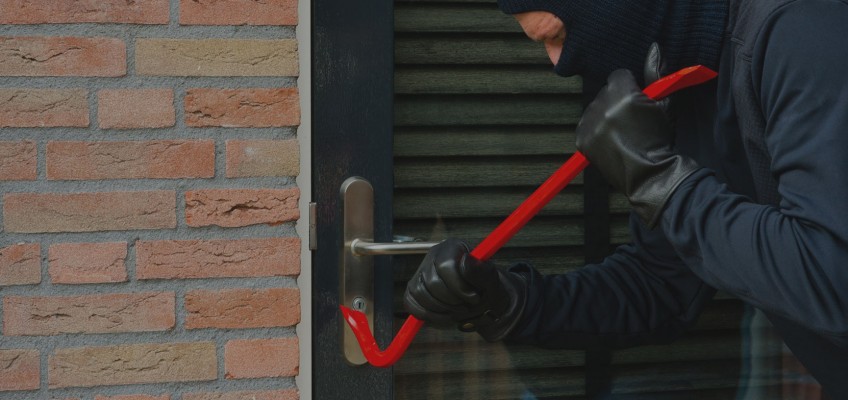Deadlocks come in a variety of types and sizes but all have one common feature – it is very difficult to force, wedge, push, or retract the locking bolt when they are correctly fitted and locked. They can have a key from one side (known as a single sided deadlock) or both sides (known as a double sided deadlock). Quite often insurance companies require a deadlock to be keyed from both sides and placed on all external doors.
Common deadlocks include:
- Deadbolt
- Deadlatch
- Very common deadlock used in conjunction with a knob or lever set on a hinged door.
- Can be single or double sided.
- Needs to be locked manually from either side of the lock.
- Added strength over knob/lever entrance sets.
- Commonly the only lock on the door
- Can be single or double sided
- Inside can be key locked, if double sided
- Automatically latches when closing the door
- Always need a key to open from the outside
- Has a holdback feature to keep the door temporarily unlocked
- Superior strength when correctly installed
- Stainless steel bolt
- Safety release in case of a fire
Why do I need a deadlock?
People choose to fit a deadlock to a door for- Added security (harder to get into)
- Increased safety (protecting people inside)
- Insurance requirements (depending on the policy you may not be covered if you do not have the correct deadlocks and you may get a discounted premium if you do )
- work properly,
- deadlock correctly or
- even lock at all
Which deadlock is the one for me?
There are so many different options. The best course of action is to call one of our experienced and friendly staff at Gronbek Security on 9433 3311. Discuss what your requirements are. Everyone’s needs are unique. We need to consider:- What kind of door is it?
- What is the door thickness?
- What is the door and frame material?
- Does the open inwards or outwards?
- What locks/hardware/furniture is currently on the door?
- How you want the door to function?
- If the property is commercial or residential? (Different requirements)
- Any special requirements i.e.
- Meeting fire regulations
- Disability access codes
- Government regulations
- Residential tenancy act
- Insurance requirements


Leave a Reply
You must be logged in to post a comment.